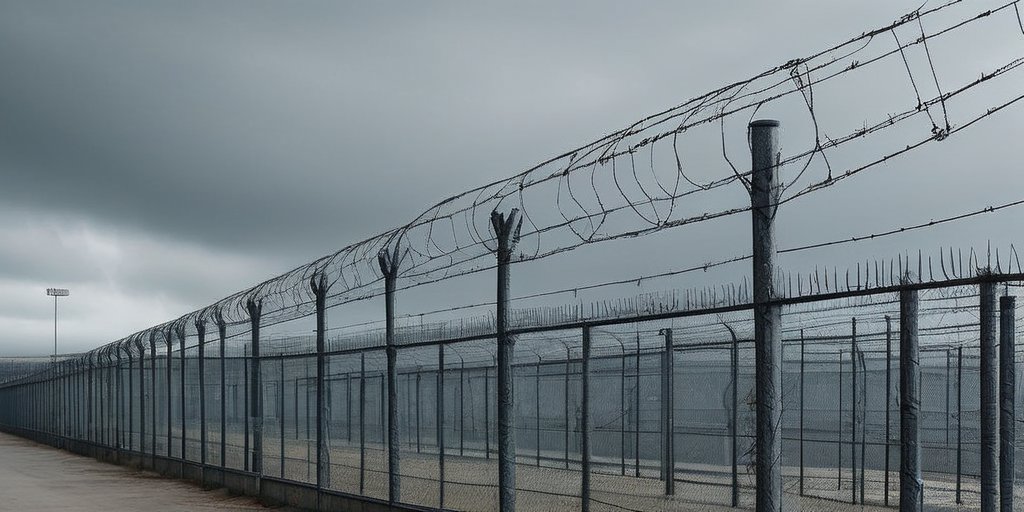In a significant move that has reignited discussions around immigration policy, US Homeland Security Secretary Kristi Noem visited the controversial mega-prison known as the Terrorism Confinement Centre (Cecot) in El Salvador. This visit follows the deportation of 238 Venezuelan nationals under claims by the Trump Administration that they are associated with the notorious Tren de Aragua gang. The deployment was executed under the 1798 Alien Enemies Act, a historical piece of legislation that allows for the rapid expulsion of foreign nationals without full due process.
Noem’s visit is viewed as a display of solidarity with Salvadorean President Nayib Bukele, an ally of former President Donald Trump, who initiated the construction of the mega-jail to combat rampant gang crime in El Salvador. This facility has become a focal point for human rights advocates who argue that the treatment of deportees raises serious ethical and legal concerns. During her tour of the Cecot, Noem’s assurances that all deportees were vetted run contrary to the growing protests both in the US and Venezuela, where families of the deportees are asserting their relatives’ innocence of gang affiliations.
The situation was further complicated when an appeals court in Washington DC upheld a temporary injunction against the deportations, highlighting the controversy surrounding the use of such outdated legislation. Critics, including immigration lawyers and activists, argue that the individuals facing deportation are often tagged as gang members based on minimal evidence, sometimes mere tattoos.
President Bukele’s agreement to house deportees from the US in the Cecot facility has drawn mixed reactions, with accusations of human rights violations looming heavily over its operations. Reports suggest inmates are held in inhumane conditions within windowless cells, raising alarms about the safety and treatment of these deportees.
The Trump Administration is adamant that the individuals deported to the Cecot represent a significant threat; however, stories of innocents caught in the crossfire of policy stances are gaining traction. As legal proceedings unfold, the jagged lines of Trump’s immigration policy and its socio-political ramifications continue to pose overwhelming challenges, culminating in an ongoing debate regarding ethics, legality, and human rights in the realm of immigration enforcement.
